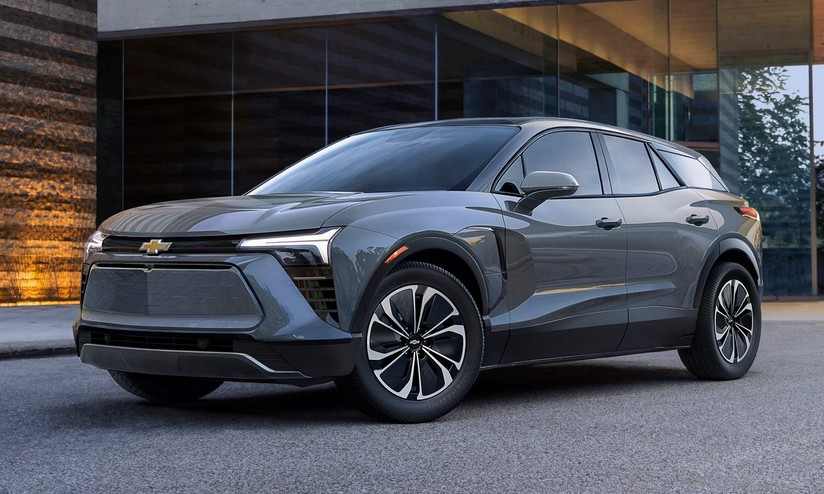The automotive world is at a crossroads as we move into 2023, with electric vehicles (EVs) making headlines for their rapid technological advancements and growing market share. According to Bloomberg Green, global EV sales surpassed 10 million units in 2022, highlighting a significant shift towards sustainable transportation. But how do EVs stack up against hybrids and traditional gas-powered cars in 2023? In this article, we’ll explore the latest trends, benefits, and challenges of each option, helping you make an informed decision for your next car investment.
The Rise of Electric Vehicles (EVs)
Why EVs Are Leading the Charge
Electric vehicles are no longer just a niche market. With companies like Tesla, Rivian, and BYD dominating the headlines, EVs are becoming mainstream. Here are some key reasons why EVs are leading the charge in 2023:
- Environmental Impact: EVs produce zero tailpipe emissions, significantly reducing air pollution and greenhouse gas emissions. According to the International Energy Agency (IEA), EVs could cut global emissions by 1.5 gigatons by 2030.
- Technological Advancements: Innovations in battery technology, such as those from Battery University, are increasing range and reducing cost. The latest EV models from Tesla and Lucid Motors boast ranges over 400 miles on a single charge.
- Government Incentives: Many countries are offering tax rebates and subsidies to promote EV adoption. For example, the U.S. offers a federal tax credit of up to $7,500 for EV purchases.
Challenges of EV Adoption
Despite their benefits, EVs face several challenges:
- Charging Infrastructure: While charging networks are expanding, as reported by CleanTechnica, there are still gaps in rural areas.
- Initial Cost: EVs can be more expensive upfront compared to gas or hybrid vehicles, although the total cost of ownership is often lower.
The Balanced Approach of Hybrids
What Makes Hybrids a Viable Option?
Hybrids offer a middle ground between EVs and gas cars, combining a gasoline engine with an electric motor:
- Fuel Efficiency: Hybrids like the Toyota Prius offer impressive fuel economy, often exceeding 50 miles per gallon.
- Reduced Emissions: While not as clean as EVs, hybrids produce fewer emissions than traditional gas vehicles.
- Versatility: Hybrids can switch seamlessly between electric and gas power, making them ideal for long trips without the range anxiety associated with EVs.
Current Trends in Hybrid Technology
- Plug-in Hybrids (PHEVs): Brands like Hyundai and Ford are investing in plug-in hybrid technology, which allows short trips on electric power alone.
- Market Growth: According to Reuters Mobility, hybrid sales are projected to grow by 30% in 2023 as consumers seek efficient alternatives to gas cars.
The Enduring Appeal of Gas Cars
Why Some Drivers Still Choose Gas
Despite the push towards electrification, gas-powered cars remain popular for several reasons:
- Affordability: Gas cars generally have a lower purchase price compared to EVs and hybrids.
- Infrastructure: Gas stations are ubiquitous, providing convenience for long-distance travel.
- Diverse Options: A wide range of models are available, from budget-friendly to luxury vehicles.
Challenges Facing Gas Cars
- Environmental Concerns: Gas cars are significant contributors to air pollution and climate change.
- Regulatory Pressure: Many governments are implementing stricter emissions standards and planning to phase out gas cars by 2035.
Practical Considerations for Car Buyers
How to Decide on Your Next Car
When choosing between an EV, hybrid, or gas car, consider the following:
- Driving Habits: If you mostly drive short distances, an EV might suit you best. For longer commutes, consider a hybrid or gas vehicle.
- Budget: Evaluate the total cost of ownership, including fuel, maintenance, and potential tax incentives.
- Access to Charging: Ensure you have convenient access to charging stations or the ability to install a home charger.
Where to Buy
- Dealerships: Most major automakers now offer EVs and hybrids. Visit local dealerships to test drive and compare.
- Online Platforms: Websites like Autotrader and Carvana offer a range of new and used vehicles with detailed comparisons.
Conclusion: The Road Ahead
In 2023, the decision between EVs, hybrids, and gas cars depends largely on personal lifestyle and priorities. While EVs are clearly the future of transportation, hybrids and gas cars still have their place in the current market. As battery technologies improve and charging infrastructure expands, we can expect EVs to become increasingly accessible and affordable. Ultimately, the choice comes down to what best fits your needs and values. As we look ahead, the shift towards sustainable transportation continues to gain momentum, promising a cleaner, greener future for all.
What are your thoughts on the transition to electric vehicles? Share your experiences and predictions in the comments below, and join the conversation on the future of mobility.

